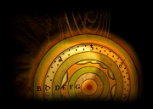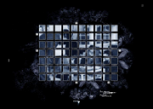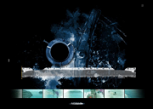 How far would you go to uncover the truth? How many cities would you travel through? How many people would you seek just to ask a single question in hopes of uncovering the smallest bit of information? At what point does the search turn into an obsession?
How far would you go to uncover the truth? How many cities would you travel through? How many people would you seek just to ask a single question in hopes of uncovering the smallest bit of information? At what point does the search turn into an obsession?
It began with the discovery of a recording. The film started innocently enough. Perhaps it was intended to be nothing more than a series of images from a family vacation. Journalist Jack Lorski did not expect to see the murder at the end of the video. Who was the man that was killed? Who were the ones responsible? Jack had to know the truth.
It wasn't long before Karen Gijman became involved with the investigation. Jack and Karen would spend hours going over the facts, trying to uncover clues that might help them unlock the mystery. Soon the couple would be completely caught up in the investigation, eventually putting them on the trail of a serial killer.
Unfortunately, the results of Jack and Karen's investigation are unknown. The couple has been kidnapped by a mysterious person only known as "The Phoenix." There is only one clue that might help in the search for Jack and Karen. It is a black disc that has been sent by the Phoenix to SKL Network, which is the company that employs Jack.
 The disc contains a series of interlinked riddles. Perhaps somewhere within its contents there is a clue that might lead the police to Jack and Karen's whereabouts. Unfortunately, nobody has been able to get past all of the puzzles until now. The Phoenix has dared SKL Network to go public with the black disc. After much deliberation, the company has decided to take drastic measures to locate their missing journalist Jack and his friend Karen.
The disc contains a series of interlinked riddles. Perhaps somewhere within its contents there is a clue that might lead the police to Jack and Karen's whereabouts. Unfortunately, nobody has been able to get past all of the puzzles until now. The Phoenix has dared SKL Network to go public with the black disc. After much deliberation, the company has decided to take drastic measures to locate their missing journalist Jack and his friend Karen.
Copies of Phoenix's CD have been distributed to a number of people across the globe. Perhaps through a great deal of dedication and collaboration, all the contents of the disc can be accessed. With the authorities at a loss as to how they can locate the missing couple, this is the only hope left for Jack and Karen. You must hurry, with each passing day the hope of finding the couple alive diminishes.
 If there is a single positive aspect of Missing, it is the game's originality. Developed by Lexis Numerique and published by The Adventure Company, Missing is presented as an alternate reality experience. Rather than taking control of a character and following a storyline by exploring various locations and talking to other characters, players get to pretend they are participating in a real investigation. While the game does have a number of rather frustrating elements, it still deserves attention for its distinct presentation style that attempts to create an uniquely immersive experience.
If there is a single positive aspect of Missing, it is the game's originality. Developed by Lexis Numerique and published by The Adventure Company, Missing is presented as an alternate reality experience. Rather than taking control of a character and following a storyline by exploring various locations and talking to other characters, players get to pretend they are participating in a real investigation. While the game does have a number of rather frustrating elements, it still deserves attention for its distinct presentation style that attempts to create an uniquely immersive experience.
The basic premise of the game is fairly simple. While investigating a series of murders, journalist Jack Lorski and his friend Karen Gijman disappear. Some time later, the Phoenix contacts SKL Network. The executives suspect this mysterious figure is behind the kidnapping. Phoenix eventually sends in a CD that may contain critical information about Jack and Karen. Unable to crack the disc, SKL Network and the authorities decide to distribute the CD. You, as the player, are one of many people that have decided to try and unlock the contents of the strange black disc.
There is a registration process you have to complete before you can start the game. You have to provide a valid e-mail address since you will receive important clues from other investigators through e-mail. A number of fictional people will contact you on a regular basis with observations about the case, theories on Phoenix's personality, or various facts that might help you in solving some of the puzzles.
 The CD itself has a straightforward but nevertheless effective presentation. At any given time, you will be presented with a set of three or six different challenges. You will have to get past these challenges before you can proceed to the next section. You can attempt the puzzles that are part of the current set in any order. However, since there are thematic connections between various challenges, solving one might help towards unlocking another.
The CD itself has a straightforward but nevertheless effective presentation. At any given time, you will be presented with a set of three or six different challenges. You will have to get past these challenges before you can proceed to the next section. You can attempt the puzzles that are part of the current set in any order. However, since there are thematic connections between various challenges, solving one might help towards unlocking another.
Selecting one of the challenges from the current collection will transfer you to a new screen where you will be presented with some clues to help you reach the answer. Sometimes, before you get to the real puzzle, you will have to click on a series of images. Combined with ambient sounds and occasional haunting tunes, these sequences help create a disturbing atmosphere.
The puzzles themselves have a somewhat dark tone. They are always presented against a black background. The choice of color on each screen seems very deliberate. Through the use of small sound effects and a variety of different imagery, the game attempts to create a feeling of uneasiness. Morbid themes and symbolism are common throughout the puzzles. On some of the best-designed screens, you can almost believe this is truly the work of a psychopath trying to prove the entire world he is smarter than the rest of us.
 The storyline unfolds through cinematic sequences presented in between various puzzles. In general, each time you solve a puzzles in a collection, the Phoenix will reward you with a video that may reveal some additional details. The videos themselves can contain clues that can help you with other puzzles.
The storyline unfolds through cinematic sequences presented in between various puzzles. In general, each time you solve a puzzles in a collection, the Phoenix will reward you with a video that may reveal some additional details. The videos themselves can contain clues that can help you with other puzzles.
There is a good degree of variety in the challenges featured as part of Missing. Some of the challenges can be overcome by only using the clues presented to you on the current screen. These are either structured as logic puzzles you might find in other games or play out as mini-games and do not require the use of your detective skills. One of the logic puzzles initially looks like a simple jigsaw. Trying to put together the pieces however, you will quickly realize they do not quite fir nicely. You'll need to do a little more work to reach the answer. On the other hand, one of the mini-games is essentially a simple miniature golf simulation. You have to guide your ball to the hole by hitting it at the correct angles and with the right amount of force. You have to complete each of the featured holes using equal to or less than a predetermined number of strikes.
A tremendously more annoying mini-game involves guiding a series of letters to the four corners of the screen. When the mini-game loads, the letters are floating around the center. You have to press various letters on the keyboard to 'push' the other letters closer to the edges. Unfortunately, getting the correct letters to various corners depends as much on dumb luck just as it does on skill. While the sheer number of mini-games featured may irritate many adventure gamers, it should be noted that some of these challenges are nicely designed and can even be entertaining while they last. Nevertheless, the game could have benefited from fewer mini-games and more genuine puzzles.
 Fortunately, Missing does have a number of creatively designed puzzles to make up for some of its weaker mini-games. For the most part, solving these puzzles requires the use of the Internet. The game will typically present you with a screen you can examine to come up with one or more clues. Sometimes you may need to manipulate some of the items on the screen in order to reveal the clues. The next step is to go online and search the Internet for the keywords you have uncovered. Sometimes the clues are very straightforward and they will easily direct you to a Web page that has the answer to the puzzle. On other puzzles you will have to sift through a certain amount of information before you get to the key details you are seeking. Even then, you may need to figure out exactly how the answer needs to be entered.
Fortunately, Missing does have a number of creatively designed puzzles to make up for some of its weaker mini-games. For the most part, solving these puzzles requires the use of the Internet. The game will typically present you with a screen you can examine to come up with one or more clues. Sometimes you may need to manipulate some of the items on the screen in order to reveal the clues. The next step is to go online and search the Internet for the keywords you have uncovered. Sometimes the clues are very straightforward and they will easily direct you to a Web page that has the answer to the puzzle. On other puzzles you will have to sift through a certain amount of information before you get to the key details you are seeking. Even then, you may need to figure out exactly how the answer needs to be entered.
If you are having trouble with some of the puzzles, the fictional characters may e-mail you clues to help you reach the answer. Sometimes their observations may prove to be extremely useful. They might even provide you tools you can utilize to better examine various clues.
 The overall concept behind Missing is most definitely refreshingly original. Pretending to take part in an actual investigation, trying to crack a strange disc created by a very dangerous man, and sifting through Web pages to find clues can all be entertaining. However, all of this does not add up to make Missing a monumental achievement. The game has significant flaws that can take away from the experience.
The overall concept behind Missing is most definitely refreshingly original. Pretending to take part in an actual investigation, trying to crack a strange disc created by a very dangerous man, and sifting through Web pages to find clues can all be entertaining. However, all of this does not add up to make Missing a monumental achievement. The game has significant flaws that can take away from the experience.
When you load up the game for the first time and solve a few of the puzzles, you will most likely be taken by the original ideas that have gone into the game. Once you complete a few sets of puzzles however, the game starts to become increasingly repetitive if not downright tedious. The cycle of solving a puzzle or winning a mini-game to watch a video clip starts to look stale. The situation is not helped by structure of some of the clips either. There is a lot of footage that does not truly add anything to the game. It feels as though some clips were only included since the developers needed something to be the 'reward' for completing a puzzle. It can be argued that a lot of the films intend to convey different aspects of Jack and Karen's investigation and relationship to each other. Nevertheless, some of them feel drawn out and lacking in substance.
The idea of solving a puzzle and then watching a film to reveal part of the story can also hurt your feeling of immersion. From the beginning, players are told the goal is to crack the disc in hopes of finding clues that might help the authorities locate Jack and Karen. However, as you interact with Phoenix's CD, the story you view for the majority of the game deals with the investigation Jack and Karen conducted. Even though the puzzles deal with specific facts the journalist and his friend discovered along the way, you can still feel distanced from the events. Rather than being immersed in the alternate reality of the game, you can feel as though you are watching a movie as part of the audience. In particular, you might feel completely out of the loop during the conclusion of the game.
 Another problem is with the atmosphere created while you are working on the puzzles. Early in the game, players will likely appreciate the effort that has obviously gone into giving the black disc a disturbing and haunting feel. But once you overcome a number of challenges, ambient sounds, flashing images, and the dark tone of the puzzles can start to lose their effect. You may even find yourself growing tired of having to click on images before you can reach the puzzle.
Another problem is with the atmosphere created while you are working on the puzzles. Early in the game, players will likely appreciate the effort that has obviously gone into giving the black disc a disturbing and haunting feel. But once you overcome a number of challenges, ambient sounds, flashing images, and the dark tone of the puzzles can start to lose their effect. You may even find yourself growing tired of having to click on images before you can reach the puzzle.
Even though they are intended to provide you with additional details about the investigation, some of the e-mails you receive might also have an adverse effect on the game's atmosphere. At times the fictional characters try too hard to find deeper meaning within the puzzles and making absolutely sure you get some of the references. A few of the e-mails may even feel as spam rather than useful information. It can seem as though the game is taking itself a little too seriously, which actually diminishes its believability.
Finally, the reliance on the Internet to solve the puzzles might be a cause for concern. Given that playing Missing requires a registration process and you are sent a number of e-mails throughout the investigation, it is highly conceivable that at some point the server will be taken down and players will not be able to access the game. Of course, that much is true for any massive multi-player game. But in the case of Missing, there is also the added concern of being able to find the Web sites you need to solve the puzzles. There are already a number of Web sites trying to take advantage of the keywords featured in Missing. As such, conducting a search may not always take you to legitimate sites, making it more difficult to find the correct answers to than what the developers intended.
 Despite certain problems, viewed as a whole, Missing is still a commendable achievement. It is clear that a great deal of work has gone into creating a unique experience with various distinct elements to make players feel as though they are part of the investigation. The game does feature a good number of creative puzzles. Some of the presentation is quite effective. Some of the video clips, a number of the challenges, and the sound effects all combine to deliver a suspenseful atmosphere. The game is most certainly not without its flaws. The sheer number of mini-games featured can be frustrating, the video clips do not always add much to the story, and players may feel a bit left out of the story. However, unless you find the very idea of using a search engine to solve puzzles repulsive, consider giving Missing a try. It may not be perfect, but it is still an entertaining and unusual experience that can maintain your interest.
Despite certain problems, viewed as a whole, Missing is still a commendable achievement. It is clear that a great deal of work has gone into creating a unique experience with various distinct elements to make players feel as though they are part of the investigation. The game does feature a good number of creative puzzles. Some of the presentation is quite effective. Some of the video clips, a number of the challenges, and the sound effects all combine to deliver a suspenseful atmosphere. The game is most certainly not without its flaws. The sheer number of mini-games featured can be frustrating, the video clips do not always add much to the story, and players may feel a bit left out of the story. However, unless you find the very idea of using a search engine to solve puzzles repulsive, consider giving Missing a try. It may not be perfect, but it is still an entertaining and unusual experience that can maintain your interest.
|
